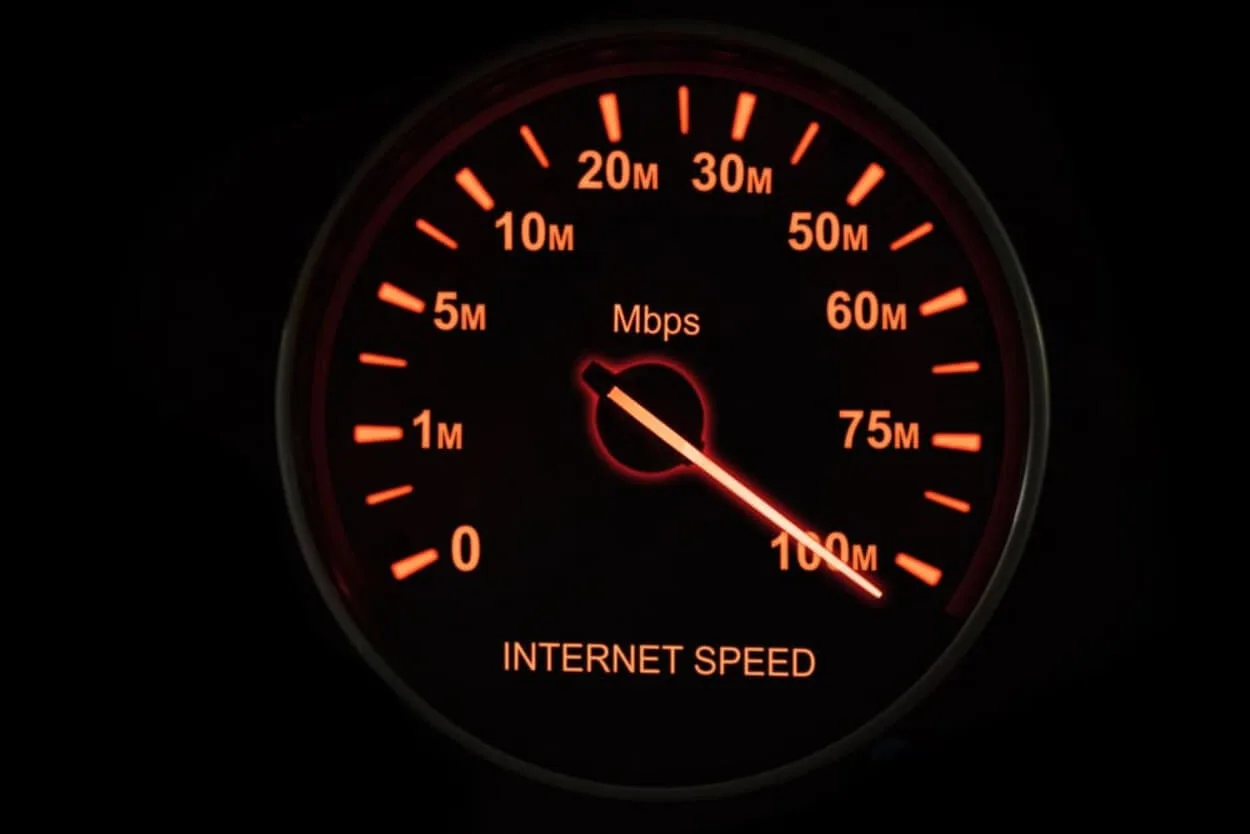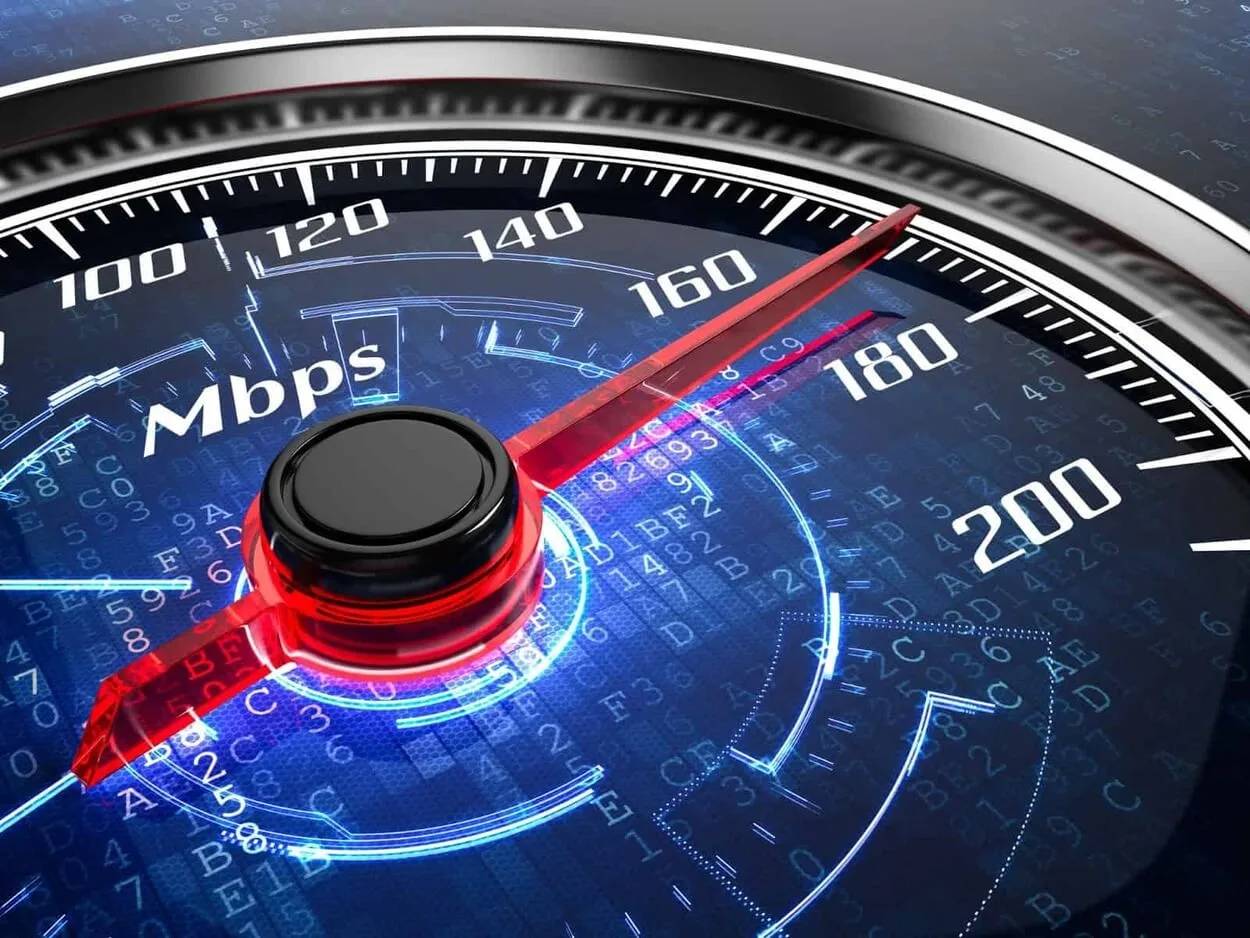We all use the internet, whether it be for streaming, entertainment, work, or research. But how many of us can do this comfortably?
Internet speeds have become faster worldwide to serve our people better. On average, a person can wait only 7 seconds for a webpage to load before calling it quits. Since internet speeds have become faster, is there any noticeable difference between 100Mb/s and 200Mb/s?
Let’s find out.
The fascinating world of the Internet
There was a time when we couldn’t keep in touch with friends or family members, couldn’t order food online, and couldn’t watch our favorite shows whenever we wanted.
Luckily, in 1984, the predecessor to the Internet, ARPANET, began working with 50-kilobyte channels. This may seem like a small number now, but remember that people could only use 53-kilobyte connections when the World Wide Web was introduced in 1993.

To put this into perspective, 58kbps can download a single, low-quality movie in 28 hours at most.
This means that if you downloaded a low graphic quality film and didn’t use the internet for anything else, the movie would finish downloading 28 hours later.
Google Launched Google Fiber in 2013, which provided internet speeds of up to 1 gigabyte per second, with the lowest speeds being provided at around 10 megabytes per second.
As you can see, the history of the internet is one of an ever-growing demand for faster internet speeds with increasingly reduced costs. Cisco has indicated that 2021 global interest traffic was around 236 billion gigabytes. That’s a lot!
Wait, what are bytes?
The less tech-savvy among us must be confused about what Internet speeds and bytes refer to. Don’t worry, though, we’ll briefly go over it here.
First, you must know that your device (your PC, tablet, phone, or laptop) has its language. It doesn’t speak in English or Spanish but in 1’s and 0’s. These are referred to as bits.
A byte is a collection of 8 bits and is the smallest processing unit for any electronic device. Every message you send, story you upload, or tweet you post must first be broken down into bytes before your device can do anything with it.
But a byte contains a small amount of information, so it must be grouped with other bytes to craft a complete message.
This table may help you understand how byte groupings work:
| Term | Number of bytes |
| Byte | 1 |
| Kilobyte | 1,000 |
| Megabyte | 1,000,000 |
| Gigabyte | 1,000,000,000 |
| Terabyte | 1,000,000,000,000 |
| Petabyte | 1,000,000,000,000,000 |
| Exabyte | 1,000,000,000,000,000,000 |
This might be a lot to process, but remember that most laptops and computers have processing capacities and storage in either gigabytes or, in rare cases, terabytes. Anything above terabytes is for major processing devices, such as the ones used by Google.
So, bytes are the basic units for processing and memory. However, you may be surprised that your internet speed is measured in bits per second.
Why is this?
This is because the internet sends data to your computer through bits, which aren’t sent in a specific order. Your internet speed refers to the speed at which data is either downloaded from/uploaded to the Internet.
This can refer to your download and upload speeds. For simplicity, we’ll say that download speed is how fast data is transferred from the Internet to your computer, and upload speed is the opposite.
According to reports, most internets perform as advertised in the long term. Do note that when downloading or uploading items with the Internet, there will be some fluctuations in the short term.

Your 100mbps connection can drop to as low as 85mbps, though it’s rare for it to drop any lower.
Your internet connection can fluctuate due to a variety of reasons:
- Your geographical location
- The number of people using your internet at any one time
- The average traffic of the website you visit (more traffic – lower speeds)
- The type of device you are using (laptops have lower connections as compared to mobiles)
For fast internet speeds, you should rely on broadband internet companies, as these companies use multiple channels of information to send data to (and receive data from) Internet users like you and me.
What’s the difference between 100mbps and 200mbps?
The two most common internet speeds the average user has access to are 100mbps (megabits per second) and 200mbps.
Normally, you’d assume that a computer with access to 200mbps would work twice as fast as one connected to a 100mbps internet.
A few years ago, you’d be right. Net speeds have grown increasingly fast in the modern era, so a 100mbps internet connection today is much faster than a 100mbps connection 8 years ago.

However, you’d be wrong to assume that 200mbps is a faster internet speed compared to 100mbps.
Recent studies have proven that, in most cases, 100mbps tends to outperform 200mbps in both downloading and uploading, but only in 10GHz (gigahertz) networks.
In 25 gigahertz networks, the opposite tends to happen. Since the average citizen usually only has access to 10 GHz networks, you’re much better off with 100mbps.
Comparing Costs and Accessibility of 100mbps vs. 200mbps Internet Connections
Another difference is their cost. 200mbps internet connections tend to be significantly more expensive compared to a 100mbps connection. Verizon charges $40 for a 200mbps broadband connection, which is rather pricey.
In addition, most people have easier access to a 100mbps connection than a 200mbps connection.
Perhaps the biggest difference between 100mbps and 200mbps internet speeds is that there is no individual difference in their performance.
If you’d like to verify if 100mbps is sufficient for gaming or streaming in general, please watch this video:
When you’re streaming alone, with no other devices using your internet connection, it doesn’t matter whether you use a 100mbps connection. You’ll see that both internet speeds have the same performance throughout.
However, their differences become more apparent when many people utilize the same connection. A 200mbps connection has a larger bandwidth, meaning it can support more devices than a 100mbps connection.
Conclusion
- Internet speeds have changed a lot. It went from slow 50-kilobyte channels to super-fast 1-gigabyte speeds with Google Fiber.
- Knowing about bytes is important; they’re the basic blocks of digital info, 8 bits each.
- Even though devices talk in bytes, internet speeds are measured in bits per second.
- Going from 100mbps to 200mbps might only sometimes mean better performance. Especially it is the case in most networks.
- Studies say sometimes 100mbps works better than 200mbps, especially in 10GHz networks.
- 200mbps can cost more and be harder to get than 100mbps. They might perform similarly for individuals.
- For regular things like streaming or gaming alone, 100mbps might be enough. But if many devices use the internet together, 200mbps could be better because it can handle more.
- It’s common to think you need faster internet than you do. Check how much your devices rely on it before paying for more speed.

